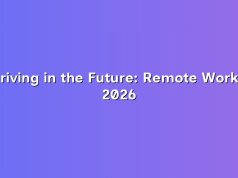Afraid of a conflictual situation? You wouldn’t be human if you weren’t. However, if you teach your mind to face conflict fearlessly and bargain win-win results, you will enormously expand your leadership performance. Managing conflict will undoubtedly develop more powerful bonds in teams, drive beneficial company collaborations and boost your capacity to inspire and engage. It is likewise crucial in generating the creativity and innovation required to lead in today’s frequently turbulent markets.
Self-awareness
Self-awareness is one of the best conflict management skills you can have. Suppose you have to mediate. For example, you’ll require to observe and monitor your own feelings and biases to make sure they do not negatively tint your decisions.
Exactly how can you become much more self-aware? Ask for feedback.
Assertiveness
If the very first notice of conflict makes you wish to run the other way, you may need to work on your assertiveness. According to Psychology Today, “People who are assertive clearly and respectfully communicate their wants, needs, positions, and boundaries to others.”
This is the opposite of passivity. A passive person may avoid confrontation, which means they never completely manage conflict because they refuse to acknowledge it.
Being assertive as a manager usually means being the very first one to address a brewing conflict. So you’ll need to be clear about what you see, why it’s a concern, and just how you mean to help.
Stress management – cause it’s running amok in the current times.
This conflict resolution skill links closely with emotional intelligence. After all, you’ve got to be aware of the stress and anxiety you’re feeling first before handling it or attempting to serve others in handling theirs.
It’s essential to practice managing the anxiety you feel since stress can hinder logical thinking, as we stated in the past.
Question framing
Questions and how you put them together can significantly influence how a person feels and responds. For example, when asking questions throughout conflict management, one helpful pointer is to switch “why” for “what.”.
“Why” often tends to place us in a defensive mode. We sense that we are being interrogated or implicated when we listen to that word. A switch to “what” and unexpectedly the interrogation feels less accusatory.
Empathy – because it’s more than just a buzzword
You’ve possibly come across the word “empathy” used abundantly. It’s about having a non-judgemental attitude and genuinely attempting to understand what others are going through.
To do this, you want to begin with a curious state of mind. Then try to understand why someone is reacting in a particular way. With this practice, you are better placed at learning the origin of the issue.
One more suggestion to boost your conflict resolution skills: make sure to acknowledge every person’s emotions before you ask any questions.
Listening
As a manager, it may be tempting to do all the chatting when there’s a conflict. Yet if you truly want to see the scenario from another individual’s viewpoint, you need to ask questions and take note of the replies.
It might seem like a straightforward skill, yet surveys show that listening is lacking in the office.
If you intend to make the most of a conflict, be sure to listen to your team’s feedback and also advice.
Emotional management
Being able to manage your feelings is a vital conflict management skill. This consists of having the ability to detach yourself from the outcome mentally. Keep in mind; conflict management doesn’t directly seek a resolution; it simply tries to reduce the adverse results of a dispute and optimize the positive results. If you’re too caught up trying to fix a problem, you could fail to reap the benefits of the challenge.
The future of work means differently to each one of us: some see it as more technology and less human, some expect a more humanized space and some others imagine it to be a no-workplace world. In our journey to unwrap FutureofWork, Work2.org invites leaders from various industries to help our global community to understand what the posterity holds for workers, leaders and organizations. While our team is busy at bringing this fresh ideas directly to you, we would appreciate our community help in making it possible. If you like what you’ve read, we would appreciate if you could spread the word within your circles and let us know if anything you want us to bring into this #FutureOfWork conversation.




























